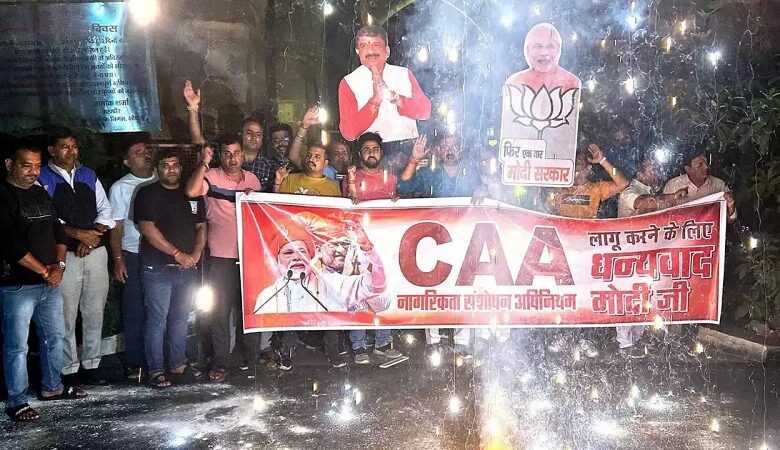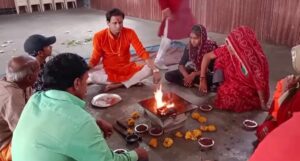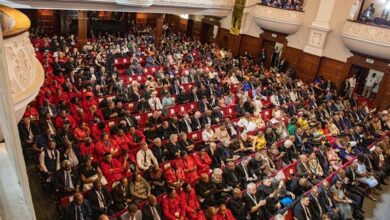
As India progresses with the implementation of the Citizenship Amendment Act (CAA), families who have received citizenship express relief despite the challenges they faced. Inside a small asbestos-roofed house in a northwest Delhi slum, 42-year-old Radha and her family find solace from the May heat in the form of a new TV and the bright blue dossiers confirming their Indian citizenship.
This slum cluster in Adarsh Nagar, housing around 200 shanties, is a refuge for many Hindu refugees from Pakistan, Afghanistan, and Bangladesh. Some, like Radha’s family, now proudly hold Indian citizenship papers, ending years of uncertainty. Others await their turn at the nearby Malkaganj post office for the verification process.
“We are free humans here. Our girls are free to go to school and take any course in the future, which will bring us prosperity someday. We have no regret about leaving Pakistan and are hopeful of our future,” Radha said.

The Citizenship Amendment Rules, notified on March 11, have started the CAA’s implementation, fast-tracking citizenship for non-Muslim migrants from Pakistan, Bangladesh, and Afghanistan who entered India before December 31, 2014. On May 15, the Union Home Secretary handed the first set of citizenship certificates to 14 applicants in New Delhi, including Radha’s children and their spouses.
However, Radha’s own application stalled due to the unavailability of her father’s Pakistani passport. Her husband, Madho, who has facilitated the citizenship process for many families in the colony, also faces delays due to documentation issues. Nonetheless, they remain optimistic about their turn.
Among the new citizens were Yashoda (29) and her younger brother Bharat Kumar, who live in another slum in north Delhi’s MajnukaTila. “With this certificate now, I am an Indian citizen,” Yashoda said. “I could never go to school and become something of my own. At least my children, especially the girls, will be able to make it to a better life.”
The families’ journey to India began with a pilgrimage visa to Haridwar, sponsored by a relative in Gujarat. Radha’s family entered India on March 22, 2014, on the Thar Express at Munabao station in Rajasthan’s Jodhpur. After reporting to the nearest police station in Gujarat, they moved to Delhi in 2018 for better prospects. Harji and Arjun found work selling mobile covers, and Bawna passed the 10th standard from a government school.
Radha recounted their life in Pakistan’s Sindh province, where they owned a banana plantation but lived in constant fear. Her daughters attended school veiled in burqas and studied Islamic texts, far from the future Radha envisioned for them. She recalled a particularly harrowing incident involving her elder daughter, Sita, who was beaten by her father for leaving the house alone, fearing abduction and forced marriage.
For Yashoda, the fear of forced conversion and marriage in Pakistan was ever-present. Her family of 14 left Sindh’s Hyderabad and entered India on tourist visas in 2013. “We could never go to school because our families feared that we would be converted to Islam and end up marrying a Muslim man there,” she said.
Madho described the citizenship process as largely smooth, submitting documents online and attending verification at the Malkaganj post office. Despite missing paperwork delaying his and Radha’s applications, they remain hopeful. Madho’s son, Kishan, and his wife, who arrived in India after the cutoff date, are ineligible for citizenship, a concern for Radha.
Yashoda shares similar worries about her husband and parents still awaiting citizenship. Most of her relatives remain in Sindh’s Hyderabad, and she often frets about their wellbeing.
Life in India has not been easy for these families, part of an estimated 30,000 refugees trying to rebuild their lives. Radha recalled living without electricity in Adarsh Nagar for three years, enduring heat, dirt, and cramped conditions. But recent improvements, including a better house and electricity, have brought some relief.
“We have come a long way from what we began our lives with,” Radha said, proudly pointing to the new LED TV they bought before the Ram Mandir inauguration. Despite leaving behind their business and home in Pakistan, Radha has no regrets. For her, freedom and peace outweigh prosperity.






